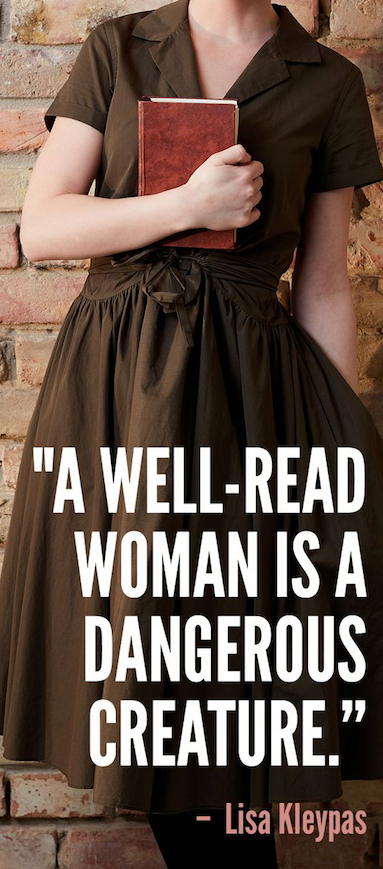Sue Grafton very famously said that if you want something, you have to voice that desire out loud; say it to someone.
It’s very strange; we are often taught–at least I was–that ambition in slight moderation is a good thing, but over-weaning ambition is a bad thing. I was taught that bragging is unbecoming; because if you truly did something well or a great job at something, you wouldn’t need to boast, would you? This was drilled into my head for as long as I can remember: you get complimented, you don’t brag, and if you do get complimented, you are gracious and self-deprecating.
This is so deeply ingrained in me that it is very hard for me to be ambitious, or share my ambitions with anyone; it’s hard for me to take pride in what I’ve accomplished; and I always look for a way to turn any compliment into a “if I can do it, anyone can” kind of thing.
Another friend of mine thinks daily affirmations is also a way to get what you want; if you say what you want out loud to your mirror (or your computer, whatever), you can create the kind of mindset that will help you attain your goals. I wrote some out last year, at the beginning of the year, but after a few weeks I started feeling self-conscious about doing it, kind of silly, and I stopped.
Self-defeating, isn’t it?
So, in the interests of breaking this cycle, and of getting better at taking compliments and believing more in myself, here are some goals I want to achieve:
I will take my career to go to the next level.
I will get an agent.
I will write reviews for the New York Times.
I will sell short stories to high paying markets.
I will get a story selected for the Best American Mystery Short Stories series.
I will get a short story published as part of the Bibliophile series.
I will win a major writing award.
Whew. I already feel like writing all the down is going to jinx me in some way. NO NEGATIVITY NO NEGATIVE THOUGHTS.
So, there’s that. I’ve also made some great progress on the Short Story Project, including “Dear Penthouse Forum (A First Draft” and “The Babysitter’s Code.”
You won’t believe this, but this really did happen to me just last fall, and all because I was five minutes late, which seemed like a tragedy at the time. “It’s only five minutes,” that’s what I kept telling the woman behind the counter, who couldn’t be bothered to raise her gaze from her computer screen and make eye contact with me. Which is too bad, because I don’t need much to be charming, but I need something to work with. Why did they make so many keystrokes, anyway, these ticket clerks? What’s in the computer that makes them frown so? I had the printout for my e-ticket, and I kept shoving it across the counter, and she kept pushing it back to me with the tip of a pen, the way I used to with my roommate Bruce’s dirty underwear, when we were in college. I’d rounded it up with a hockey stick and stashed it in the corner, just to make a pathway through our dorm room. Bruce was a goddamn slob.
“I’m sorry,” she said, stabbing that one key over and over. “There’s just nothing I can do for you tonight.”
And so begins yet another delightful Laura Lippman story, only written in the style of a letter to Penthouse Forum. That premise, very clever in and of itself, also makes the story a bit of a time capsule; does Penthouse and it’s sister digest of letters, Penthouse Forum Letters, even exist anymore? How long before no one even remembers their existence anymore? And why did I not ever try to write them? It was good money. But I am digressing. This clever story goes on to have our main character trapped in the Baltimore airport overnight; unable to swing the money for an airport hotel or can back to his apartment, and then a beautiful woman in her thirties shows up to not only save the day for him, but to entice him with the possibility of incredible, strings-free sex. (Which was pretty much the theme of every letter to Penthouse Forum; there were erotic flash fiction.) But being a Lippman story, there’s more going on than just incredible, no strings attached sex, and when the story turns, it’s unexpected and quite delightful.
This second story from Hardly Knew Her, “The Babysitter’s Code,” was originally published in Plots with Guns in 2005; and this is the period when Lippman moved from her delightful Tess Monaghan series (which I should reread) to writing her stand-alone thrillers; or literary fiction about crime, which is what they really should be described as. That broadening of her scope, and stretching of her talents, is very clear in this story.
The rules, the real ones, have seldom been written down, yet every girl knows them. (The boys who babysit don’t, by the way. They eat too much, they leave messes, they break vases while roughhousing with the kids, but the children adore the boys who babysit, so they still get invited back.) The rules are intuitive, as are most things governing the behavior of teenage girls. Your boyfriend may visit unless it’s explicitly forbidden, but the master bedroom is always off-limits, just as it would be in your own house. Eat what you like, but never break the seal on any bag or box. Whatever you do, try to erase any evidence of your presence in the house by evening’s end. The only visible proof of your existence should be a small dent on a sofa cushion, preferably at the far end, as if you were too polite to stretch across its entire length. No parent should come home and peer into the Pringles can–or the Snackwell’s box or the glass jar of the children’s rationed Halloween candy–and marvel at your capacity. There is nothing ruder that a few crumbs of chips at the bottom of a bag, rolled and fastened with one of those paper clips, or a single Mint Milano resting in the last paper cup.
This story is more of a character examination than an actual story, and it’s also slightly reminiscent of Raymond Carver’s “Neighbors,” and talks about an essential truth we all tend to really ignore: when someone is alone in our homes, whether they are watching our children or pet-sitting or cleaning, they are privy to our secrets. And this house has plenty of secrets, in this affluent suburb of Baltimore; secrets that are too hard for our young babysitter to resist, as she snoops through the lady of the house’s closet and underwear drawers, and observes the crumbling marriage of the wealthy homeowner, his much younger trophy wife, and their genetically damaged baby. This story is both wistful and sad, more so than suspenseful, although the fear of being caught is always there. It’s also a very insightful look at how a teenage girl’s mind works. Brava, Ms. Lippman, brava.
I also discovered a volume I’d forgotten, and was very excited to rediscover. I’d forgotten that one year Sue Grafton skipped a book in the Alphabet Series and instead published a short story collection, Kinsey and Me, and I am really looking forward to diving into it. Yay!
I am really enjoying the Short Story Project of 2018.
Here’s a hunk for you.







